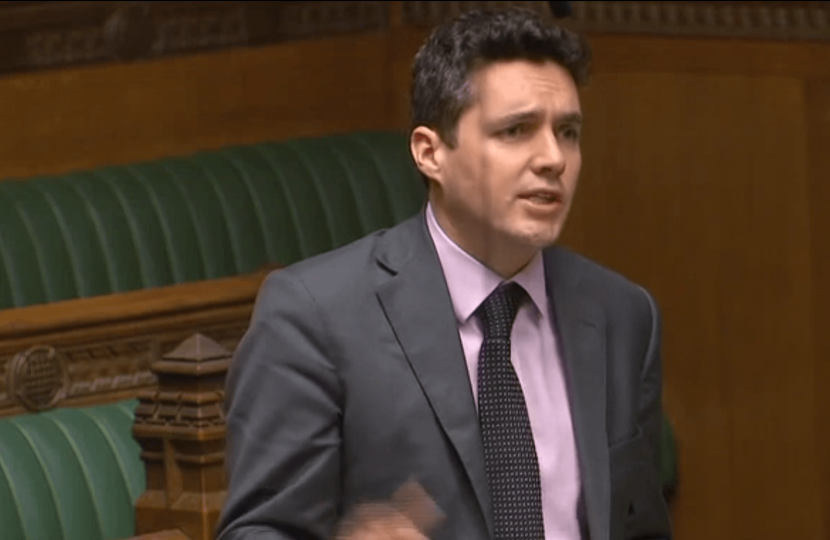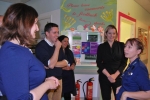
Today Huw spoke in the Opposition Day Debate on the NHS Winter Crisis. You can watch Huw speak here: https://goo.gl/1rmhzY and read Huw's speech below.
It is a pleasure to follow the hon. Member for Crewe and Nantwich (Laura Smith) in this important debate on the NHS and the challenges that, unfortunately, it tends to face in winter. We should bear in mind that, for decades, winter has given the NHS challenges to meet, and as a result, clinicians have been asked not to take time off in January. Last Friday, I spent time with a GP practice, where staff confirmed that the flu epidemic is one of the worst they have seen for many years.
From the perspective of patients, it is wrong that those who have waited months for surgery—perhaps routine, but for a condition that has an impact on their lifestyle—have been told that it has been cancelled. We need to change, but I believe we need to change the entire structure. It is all very well and good for the Opposition to write cheques that they know would bounce. What we have to do is reform the NHS within the resources available. We also have to consider the impact of the ageing population and the challenge—which we embrace, of course—of looking after them. In the last decade, 17% of this country’s population was over 65; in the present decade, the proportion rises to 20%; and in the next decade, it will be 30%. That might be why the number of hospital admissions has risen by 40% over the past 10 years. I am delighted therefore that the Department of Health is now responsible for social care, particularly reform to it; that is long overdue. We need a cross-party approach. I am aware that every governing party tends to say that, but I would ask Opposition Members to please rally round. There are some great ideas that we can all get around.
I want to focus on the pressures facing GP surgeries and the pressures that puts on our hospitals. Too many patients are going to A&E because their GP surgery is not there for them. I spent some time with a GP who had just returned from visiting a patient he had made comfortable at home. He pointed me to another area my hospital trust covers where that patient would have been put into hospital for some weeks, which would not have been good for the patient or all those other patients waiting for their care. We have seen huge demand from the elderly. I am still greatly concerned that the social care system is set up on a local authority basis. Many local authorities to which people retire do not have the same business rates as other areas—they have a lot of elderly folk but not the business to fund them—and certainly not as much council tax. In looking at reforms, I would like the Government to consider putting social care on the same footing as the central NHS.
I would like to see more powers given to CCGs, or perhaps a tier above, to enable them to intervene where GP surgeries are not functioning as they should be. At the moment, there is no sharing of data, so CCGs cannot see where surgeries might be about to fall over. We expect CCGs to intervene and take over when things go wrong, but that is often too late, so I would like to know if more taskforces could be put in place. It is clear that the GP model that we have continued with since 1947 is not the GP model that younger GPs want to buy into: they do not necessarily want to buy into the practice model, are concerned about litigation and do not necessarily want to stay in the same place for all those years. We need great reform, therefore, and I add my support to the voices on both sides of the House saying that perhaps a royal commission is the way to take this forward.



